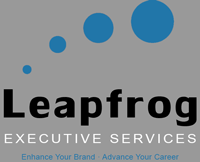What is Your Value Proposition?
Category : 2023
An idea that first appeared in a 1988 industry research paper by McKinsey & Co. has become fundamental to creating a uniquely defined market position for a product, company, or person. Differentiation in a competitive segment or in a dynamic executive job market emerges from a concise, direct, and persuasive value proposition.
Talent is a product. That product is uniquely packaged and individualized in a person. The process and components for creating a distinct product value proposition are the same for crafting an impactful executive value proposition. A value proposition is a concise statement that clearly defines how a product helps the targeted audience achieve its objectives. More than a declaration of what a product is (features it offers), a value proposition clearly demonstrates what a product does (outcomes it creates).
A value proposition enables an executive to create what Warren Buffett calls in the financial world, an economic moat. Like medieval moats protected a castle, an economic moat helps an entity maintain a competitive advantage over competitors with similar products or solutions. Competitive advantage isn’t as much about being unique or different as it is about using comparable resources to outperform competitors.
Executives who have invested decades in creating value propositions for products often struggle when attempting to author a value proposition for themselves. An effective value contribution includes the following traits.
It defines how you fit.
Contrary to promises made by those fast-talking and persuasive hawkers at the state fair—nothing does everything. No one is a fit for everywhere or the answer to every senior leadership challenge. We all have strengths that create opportunities for us and limitations that anchor us in reality. A self-secure executive knows how to present competencies effectively and explain limits realistically.
It is direct.
Since all decisions include both rational and logical components, a value proposition appeals to both the head and the heart. A statement of value concisely tells how an executive can help a company achieve its goals while including the relational dimensions that drive decision making.
It is persuasive.
Any business, large or small, profit or non-profit, national or multi-geographic, is successful when it manages and balances the five drivers of success—cash flow, profitability, asset management, growth, and people resources. Any executive that wants to clearly define a value proposition in a market distinctly knows how his/her/their capabilities and skills drive results in the five dimensions of business success.
It stands alone.
If a value proposition is about an executive’s capabilities, that statement doesn’t need a company or title to give it credibility. A quick scan of LinkedIn shows how many leaders fail to grasp this concept. Many capable and effective executives use the most important real estate in a LinkedIn profile to drop a title or promote a company—neither of which has anything to do with a value proposition.
It drives a response.
An effective value proposition says enough to position an executive without saying so much there is no need for a conversation. When done well, a concise value proposition gives an audience a clear understanding of your message and that message prompts the listener to take a step to learn more, explore possibilities, or make an offer. When presented effectively, a value proposition and the conversation that follows prompt the prospective audience to say, “If you did that there, can you do it here? Let’s find a way to make that happen.”
Many people are uncomfortable talking about themselves. Or, in the face of competing priorities, they choose to focus on other things. Luck really is Preparedness + Opportunity. Are you interested in better positioning your value proposition to get the results you desire? You can reach us at info@leapfrog-services.com or 214-435-5409.
Enhance Your Brand ~ Advance Your Career
